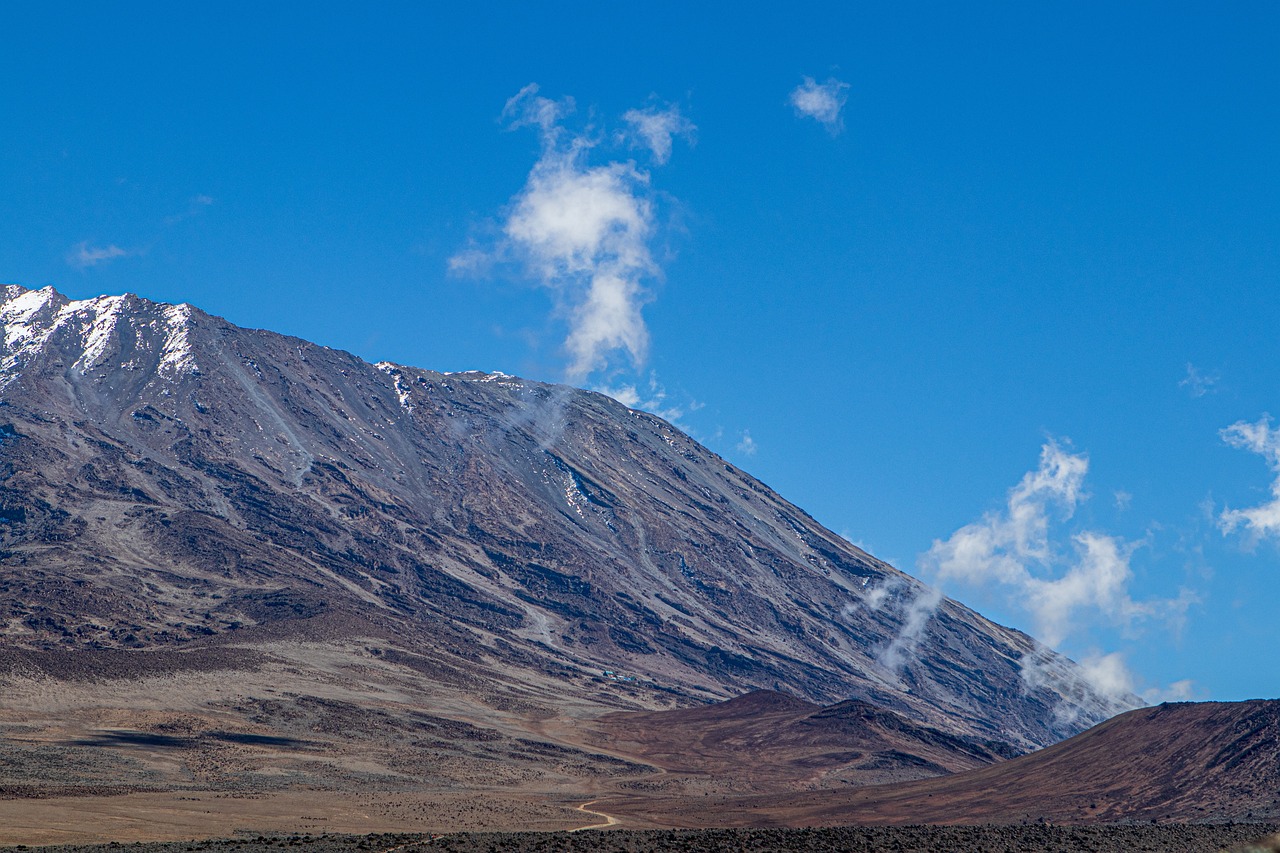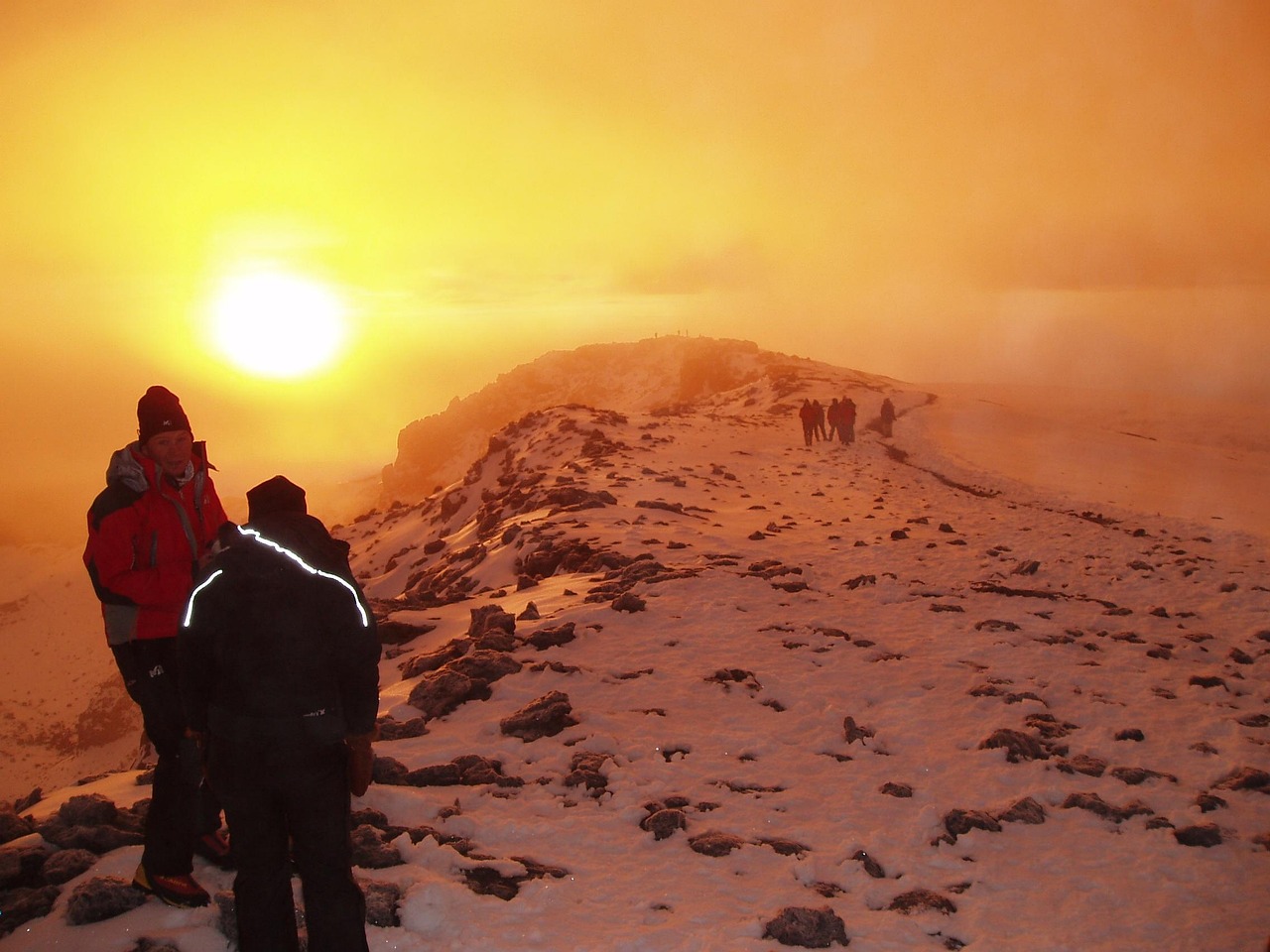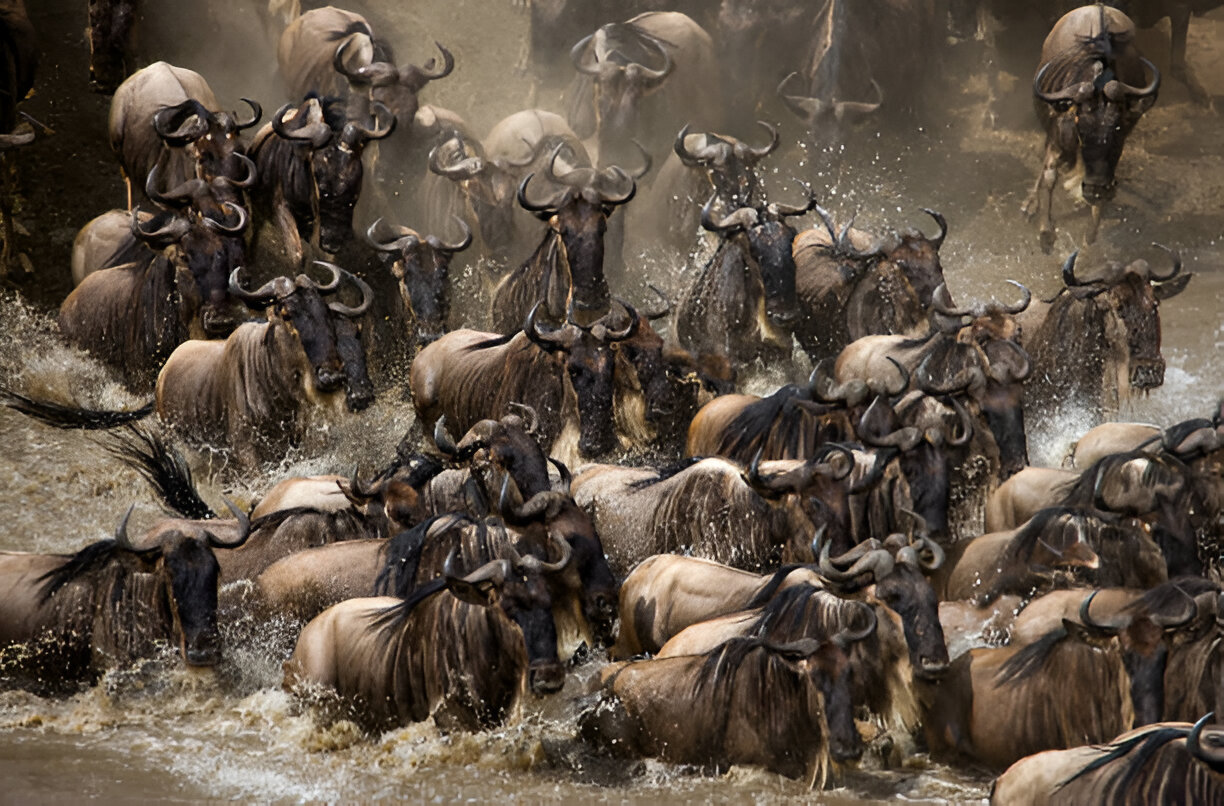Northern Circuit Route 9 Days Kilimanjaro Budget Trekking
Book Your Kilimanjaro Northern Circuit Route 9 Days Package!
Interactive Route Map
Explore the Northern Circuit Route and all daily camps interactively:
📍 Mount Kilimanjaro, Northern Circuit Route
- Tanzania - East Africa
- Starting from: $2,200 – $3,200 per person Price depends on group size, services, and accommodation preferences.
Northern Circuit Route 9 Days Kilimanjaro Overview
The Northern Circuit Route 9 Days Kilimanjaro Budget Trekking is the ultimate Kilimanjaro experience, providing trekkers with ample time to acclimatize while exploring the mountain’s vast landscapes. This extended trek allows you to enjoy one of the most scenic and less crowded routes on Kilimanjaro, starting from the western side and circling around the mountain.
With 9 days on the mountain, trekkers can ascend slowly, which significantly increases their chances of reaching the summit of Uhuru Peak. The Northern Circuit offers the chance to experience a wide variety of ecosystems, including lush rainforests, alpine moorlands, and barren high-altitude deserts. The extended itinerary ensures that you’re well-prepared for the summit and provides additional time to enjoy the beauty and serenity of Kilimanjaro.
Tour Highlights:
🌲 Enjoy a quiet, peaceful trek with fewer crowds on the Northern Circuit
🥾 Experience Kilimanjaro’s diverse landscapes, including forests, moorlands, and deserts
🏞️ Benefit from a gradual ascent with ample acclimatization time
🎒 Support from experienced guides and well-maintained camping facilities
🏅 Reach Uhuru Peak, Africa’s highest point, with a high success rate
Chat with our expert direct via email!
Itinerary — Northern Circuit Route 9 Days Kilimanjaro:
Day 1: Arrival in Moshi & Transfer to Londorossi Gate
🚙 Activity: Transfer from Moshi to Londorossi Gate & Start Trek
🍽 Meals: Dinner
Upon arrival at Kilimanjaro International Airport, you’ll be met by your Olduvai Tours Tan Africa guide, who will transfer you to Moshi for an overnight stay. The next day, you’ll head to Londorossi Gate for registration and your start of the Northern Circuit trek. The route begins with a gentle walk through the rainforest, offering a peaceful introduction to Kilimanjaro.
After a moderate trek, you’ll reach Mti Mkubwa Camp, where you’ll spend the night surrounded by the sounds of nature.
Day 2: Mti Mkubwa Camp to Shira 1 Camp
📍 Distance: 8 km (5-7 hours)
🚙 Activity: Trek from Mti Mkubwa Camp to Shira 1 Camp
🍽 Meals: Breakfast, Lunch & Dinner
Day 2 takes you through the rainforest as you ascend steadily into the moorland zone. The trek is moderate and offers wonderful views of the surrounding landscapes. After several hours of hiking, you’ll arrive at Shira 1 Camp, located on the Shira Plateau.
Shira 1 Camp is a great spot for acclimatization, and the views here are simply breathtaking, giving trekkers the chance to take in the beauty of the plateau and surrounding mountain areas.
Day 3: Shira 1 Camp to Shira 2 Camp
📍 Distance: 6 km (4-5 hours)
🚙 Activity: Trek from Shira 1 Camp to Shira 2 Camp
🍽 Meals: Breakfast, Lunch & Dinner
On Day 3, you’ll continue trekking across the Shira Plateau, heading toward Shira 2 Camp. The terrain here becomes more open and vast, with incredible views of the mountain and surrounding areas. The higher altitude provides a great opportunity to acclimatize further, preparing your body for the next stages of the trek.
The Shira 2 Camp offers great views and a peaceful, isolated setting where you can relax and enjoy your surroundings.
Day 4: Shira 2 Camp to Barranco Camp
📍 Distance: 10 km (5-7 hours)
🚙 Activity: Trek from Shira 2 Camp to Barranco Camp
🍽 Meals: Breakfast, Lunch & Dinner
On Day 4, you’ll leave the Shira Plateau behind and head toward Barranco Camp, which is situated at the base of the Barranco Wall. This day offers stunning views of the surrounding landscape, with Kilimanjaro’s glaciers visible in the distance.
At Barranco Camp, you’ll have the opportunity to rest and enjoy the beauty of the area. The Barranco Wall, a steep climb that will be tackled the next day, looms ahead, but the stunning views make the effort worthwhile.
Day 5: Barranco Camp to Karanga Camp
📍 Distance: 6 km (4-6 hours)
🚙 Activity: Trek from Barranco Camp to Karanga Camp
🍽 Meals: Breakfast, Lunch & Dinner
Day 5 begins with the famous Barranco Wall, a short but steep scramble that offers incredible views of the surrounding area. After this challenge, you’ll continue on the trail toward Karanga Camp, a peaceful campsite with stunning views of the mountain.
Karanga Camp provides another opportunity to rest and acclimatize. The shorter distance today is designed to help your body adjust to the increasing altitude.
Day 6: Karanga Camp to Barafu Camp
📍 Distance: 4 km (3-4 hours)
🚙 Activity: Trek from Karanga Camp to Barafu Camp
🍽 Meals: Breakfast, Lunch & Dinner
Day 6 takes you from Karanga Camp to Barafu Camp, where you’ll prepare for the summit attempt. This section of the trek is through alpine desert terrain, with sparse vegetation and barren landscapes. Barafu Camp is located at a high altitude, and it’s where you’ll rest before your final push to Uhuru Peak.
In the evening, you’ll have an early dinner and rest as much as possible, knowing that a very challenging ascent awaits.
Day 7: Barafu Camp to Uhuru Peak & Descent to Mweka Camp
📍 Distance: 6 km to Uhuru Peak (5-7 hours) & 13 km descent (4-6 hours)
🚙 Activity: Summit attempt to Uhuru Peak & descent to Mweka Camp
🍽 Meals: Breakfast, Lunch & Dinner
Day 7 is the most challenging and rewarding of the trek. You’ll begin your summit attempt around midnight, trekking in the dark and cold toward Uhuru Peak. The climb is steep, but with determination and the support of your guide, you’ll reach the highest point in Africa.
After taking in the stunning views and celebrating your achievement at Uhuru Peak, you’ll begin your descent back to Mweka Camp, where you’ll rest and enjoy a warm meal.
Day 8: Mweka Camp to Mweka Gate & Transfer to Moshi
📍 Distance: 10 km (3-4 hours)
🚙 Activity: Trek from Mweka Camp to Mweka Gate & Transfer to Moshi
🍽 Meals: Breakfast & Lunch
The final day of the trek involves descending from Mweka Camp to Mweka Gate. This portion of the trek is relatively easy, with a gradual descent through the lush rainforest zone. Upon reaching Mweka Gate, you’ll receive your summit certificate, which is a reminder of your incredible achievement.
Your Olduvai Tours Tan Africa guide will transfer you back to Moshi, where you can relax and celebrate your success.
Day 9: Departure
🚙 Activity: Transfer to Kilimanjaro Airport or Moshi for departure
🍽 Meals: Breakfast
After an unforgettable adventure, you’ll be transferred to Kilimanjaro International Airport for your departure or you can enjoy more time in Moshi before heading home.
Why Choose Olduvai Tours Tan Africa for Your Kilimanjaro Trek?
✔ Expert Guides with In-depth Knowledge of Kilimanjaro
✔ Affordable Trekking Packages with Great Comfort
✔ Focus on Safe Acclimatization for Higher Summit Success
✔ Quality Equipment and Professional Staff
✔ Personalized Attention with Small Group Sizes
📌 Build Your Tour Today!


Olduvai Tours Tan_Africa
We ensure that your journey is not just a trip but a meaningful exploration of Tanzania’s natural and cultural treasures. Let us turn your dream safari into reality!
Olduvaitourstanafrica.com
Trekking Inclusions & Exclusions
Package Inclusions
✅ Accommodation – Camping or lodge stays (based on the itinerary)
✅ Meals – Breakfast, lunch, and dinner during the trek
✅ Trekking Guide – Certified, experienced mountain guide
✅ Porters & Crew – Professional team of porters, cooks, and assistants
✅ Transportation – Transfers to and from the mountain base
✅ National Park Fees – Entrance fees to the trekking destination (e.g., Kilimanjaro National Park, Mount Meru Park)
✅ Camping Equipment – Tents, sleeping bags, sleeping mats, and other required trekking gear
✅ Drinking Water – Safe, filtered drinking water throughout the trek
✅ Medical Kit – Basic first aid kit carried by the trekking team
✅ Mountain Rescue – Emergency evacuation services (if required)
✅ Government Taxes – VAT and other applicable taxes
✅ Porter Equipment – Provided gear for porters and trekking crew
Package Exclusions
❌ International & Domestic Flights – Flights to Tanzania are not included unless specified
❌ Visa Fees – Travelers must arrange their own visas
❌ Travel Insurance – Highly recommended to have personal travel and trekking insurance
❌ Personal Expenses – Laundry, tips, souvenirs, or extra services not mentioned in the itinerary
❌ Optional Activities – Any activities outside the trekking itinerary (e.g., cultural visits, extra excursions)
❌ Trekking Gear – Items like trekking boots, jackets, gloves, or walking poles (unless otherwise specified)
❌ Tips & Gratuities – Recommended for guides, porters, and crew members
❌ Alcoholic & Soft Drinks – Any drinks outside of what is provided during the trek
❌ Medical Expenses – Vaccinations, medications, or other personal medical needs
Find Out Answers Here
FAQ
1. Why should I choose the Northern Circuit Route for my Kilimanjaro trek?
The Northern Circuit is the longest and most scenic route, offering breathtaking views of Kilimanjaro’s varied landscapes. It also allows for a gradual ascent, which increases your chances of summiting successfully.
2. How difficult is the 9-day Northern Circuit Route?
The 9-day itinerary provides ample time for acclimatization, making it one of the most manageable routes for trekkers. The gradual ascent and extended duration increase the likelihood of a successful summit.
3. Is the Northern Circuit Route suitable for beginners?
Yes, this route is suitable for beginners due to the extended duration, which allows for better acclimatization. However, you should be in good physical condition and prepared for a high-altitude trek.
4. How cold does it get on the mountain?
Temperatures can drop below freezing, especially at higher altitudes. Proper clothing and gear are essential for managing the cold during the summit attempt and at night.
5. What is the success rate on the Northern Circuit Route?
The Northern Circuit has one of the highest summit success rates, largely due to the gradual ascent and longer trek, which ensures better acclimatization.



